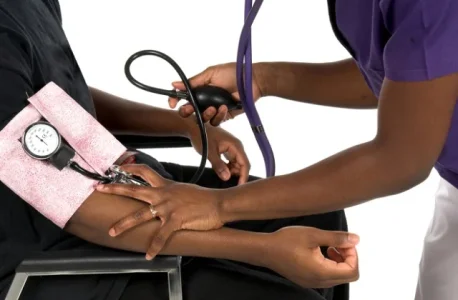
By way of definition, hypertension refers to a blood pressure reading that is persistently higher than 140/90mmHg on two or more separate occasions. Anytime the blood pressure is high, the heart is overworked and strained in trying to pump blood against the high pressure which ultimately leads to hypertensive heart disease and heart attack if left untreated.
This article is intended to educate you on what you need to know about high blood pressure in order to stay healthy at all times.
1. What causes hypertension?
In about 90% of cases of hypertension, an underlying medical cause may not be identified. This is termed essential or primary hypertension. However, the remaining cases (secondary hypertension) can be linked to diseases of the kidneys or endocrine system. For instance, most cases of hypertension in the young fall in the latter category and the blood pressure often returns to normal as soon as the underlying medical problem is treated.
2. Who is at risk of hypertension?
Several factors have been identified as potential risk factors for high blood pressure. A few of them are non-modifiable (that is little or nothing can be done about them) while most can be modified or avoided. Non-modifiable risk factors include ageing, male gender, black race as well as a family history of hypertension in a first-degree relative. The modifiable risk factors which you can do something about include smoking, excess alcohol intake, lack of exercise, obesity, dyslipidemia and diabetes.3. How do I know if I am hypertensive?
The only way to detect if you are hypertensive is to have your blood pressure checked either by yourself or by a trained health professional. If it is persistently high, then you are hypertensive. In most cases, hypertension remains 'silent' and may not produce symptoms until complications arise. However, a persistent headache, blurred vision, poor sleep (insomnia), palpitations (abnormal awareness of heartbeat) or pinprick sensations on the palms and soles may be pointers to elevated blood pressure that may warrant further evaluation.4. Untreated hypertension may be fatal
When high blood pressure is left uncontrolled, blood vessels all over the body begin to undergo progressive damage and eventually become narrowed or blocked (atherosclerosis). Evidently, this may have a fatal outcome depending on the location of the affected blood vessel. No wonder uncontrolled blood pressure has remained a major cause of such conditions as cerebrovascular accidents (Stroke), heart failure, heart attack, kidney injury, blindness and erectile dysfunction among others.
5. Hypertension cannot be cured
This is one grim reality many find it difficult to come to terms with. Many times, individuals on treatment for hypertension may decide to stop their medications under the erroneous impression that they have been cured. Unfortunately, however, some are rushed back to the hospital with a stroke or some other lethal complication which should not have occurred in the first place if they had been compliant with treatment. The lesson is hypertension is a chronic condition that should be managed for life. Apart from blood pressure-lowering drugs, lifestyle modifications are crucial such as avoidance of smoking, regular exercise and adoption of diets appropriate in stopping hypertension (DASH) like green vegetables, fruits, low-fat and low-salt foods.
Monday, 2 October 2017
Symptoms,Treatment and causes of hypertension the silent killer disease
Subscribe to:
Post Comments (Atom)
Wikipedia
Search results
No comments:
Post a Comment
Disclaimer: Opinions expressed in comments are those of the comment writers alone and does not reflect or represent the views of Skazyupdate